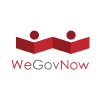-
0 comments
The main issue of this project is about how new technologies can enable an effective interactivity among citizens and citizens and government. The project is promising and well structured. It effectively contributes to EC’s Policies on E-government (user empowerment; collaborative production of services; re-use of public sector information).
Nevertheless, many tools and platforms are already working on this subject: the novelty of the project should be better expressed to its beneficiaries (WGN as a “platform of platforms”?). WGN ability to interact with other existing tools (i.e. visualization and mapping) and their interfaces is very important: a clearer description of this aspect and of the effective function WGN is going to play in order to better and ease the use of ICT tools should be given.
WGN will apply “Design for All” principles, through close collaboration with stakeholders and citizens. This is a very important aspect, in order to avoid barriers to the use of these tools, i.e. by elderly people or by people with attention dysfunctionalities (many young people today suffer from them).
Another interesting and promising aspect is the proactive attitude of this project. WGN digital platform will be developed and validated for engaging local civil society in the co-production of citizen-centred services and in the co-development of strategic approaches to community development. In this sense, the organization of workshops with stakeholders and users is a useful and innovative approach to promoting innovation both of public services, socio-technical systems, and technology.
Dissemination plan is very well defined. In dissemination activities, the organization of trial workshops where to build the project results with Government and Public Authorities, citizens and stakeholders are one of the most important. These actors are in fact the core users and beneficiaries. Listening and participation processes have to be carefully organized and their results have to be attentively analyzed. In order to make this phase more effective, the project could work together with schools and other territorial services (i.e. social and health services).
A strategic issue is how to avoid the citizens’ use of ICT tools as simple means to express conflict and negative aspects. If WGN is meant to be a “catalyst of change”, all the process should be not simply based on how to perform ICT tools, but should also stress the importance of setting a more general “mutual reliance” relation between citizens and government bodies. “Technology innovation and organizational process innovation must be pursued at the same time”.
In this sense, expected results should also give innovative prompts and suggestions (in the form of guidelines?) about the general interactive process (frontend and backend), from the activation of citizens, to the ways their demands will be met by Government bodies (how to reply, in what time; how to evaluate and select priorities; etc.; how to reorganize Public Administration services and ways if working in a more integrated way), highlighting possible bottlenecks and risks to avoid.
Since today Public Administrations already use similar tools (though not so innovative), one very important aspect is how WeGovNow will concretely interact and work together with ongoing ICT tools, both at the frontend and the backend (what about licenses of different providers?). In order to give quick answers, WGN should, in fact, have access to a large set of data (i.e. about services, public works, events, etc.) which are already managed by other platforms.
Therefore, a strategic issue is the possibility to easily customize WGN platform according to Public Administrations’ specific needs, whereas integration and customization have to be thought of as a continuous process, not just at a starting phase (Government services can change over time).
Another very important aspect is, in fact, the maintenance over time of this system: it should be very easy, automatic and cheap.

